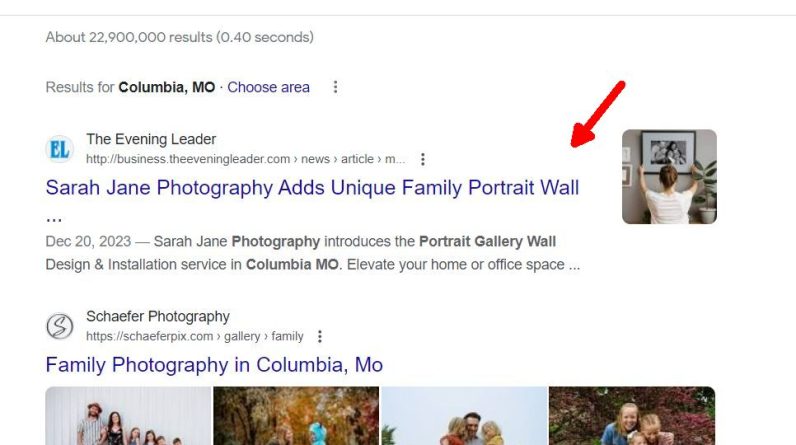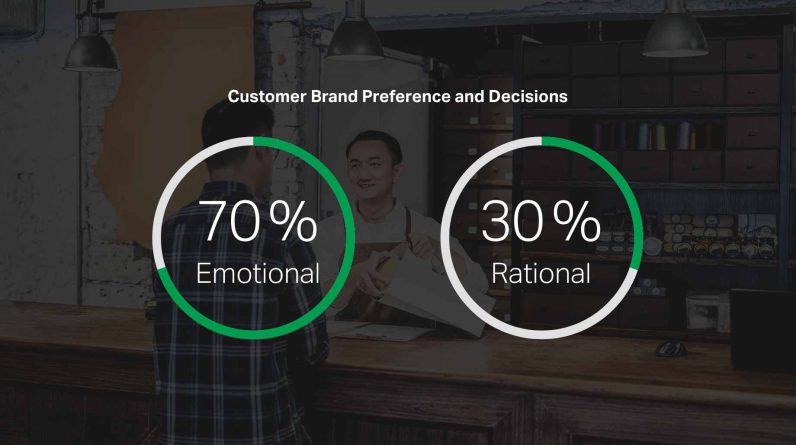I strongly feel that local businesses need Project Detail and Market Insight case studies. One proves expertise; the other proves experience. And they should be easy to find, and easy to read, on the company website.
Why? Because it’s tough to be a small business owners these days. Lots of competition, consumers worried about spending money, businesses downsizing and tightening their wallets. SMBs need every advantage they can get.
After all, you can’t stop promoting yourself, but you can’t afford to spend money without getting a return on your investment, either, right? And this isn’t easy to do!
My favorite online marketing strategy is to add case studies to your website. They’re a PERMANENT advertising strategy that pays off for years. Done properly, they help make your site findable in Google, plus they generate trust and increase sales.

Most case studies are project-based; they show how you solved a particular problem for a particular customer. They’re also referred to as “success stories.”
I also recommend case studies that show how well you understand your industry, though – “Market Insight” case studies.
In this article, we will explore the differences between “Project Detail” case studies and “Market Insight” case studies and why you should use BOTH.
What are Project Detail case studies?
Project Detail case studies refer to a detailed analysis of a particular project, highlighting its objectives, approach, implementation, outcomes, and impact. The case study describes the project from start to finish, including challenges faced and solutions implemented.
The purpose of a Project Detail case study is to document and share the success of a project, so that others can see how a particular problem was solved.
Say a foundation repair company fixes the basement of a 100 year old home with bowing basement walls and small cracks in the foundation. For that situation, and that house, they explain how they repaired the foundation, the products and solutions implemented, and the results.
Another customer may come to them with uneven, sloping floors, so they worry about foundation damage.
A different prospect may come to them with concerns about water seeping, mold and mildew in a crawl space.
It would be smart for that foundation repair company to write up a Project Detail case study for ALL of these customers/situations, because the show how well the company handles different types of foundation problems. (Note that you only have to do this ONE time for each situation – then it’s permanent info for site visitors.)
Project Detail case studies prove EXPERTISE.
What are Market Insight case studies?
Market insight case studies are a detailed analysis of a specific market, industry, or business segment to identify and/or demonstrate knowledge of consumer preferences, market trends, and competitive landscape. The purpose of a Market Insight case study is to provide insights for a target market.
If that foundation repair company wanted to highlight their knowledge of and expertise in foundation repair for their local market, they might write a case study that includes an explanation of local soil properties, how basements are typically built in their area and stats about why they employ specific foundation repair practices.
Market Insight case studies prove KNOWLEDGE.
And for companies who want or need privacy for their clients, this may be an easier way to go. While you can use a customer avatar in case studies, calling attention to your knowledge can really pay off.
Differences between Project Detail case studies and Market Insight case studies:
The main difference between project detail case studies and market insight case studies is their focus. While Project Detail case studies focus on a specific project or job, Market Insight case studies focus on a specific market or industry.
Project Detail case studies provide a detailed account of the project’s implementation and outcomes. Market Insight case studies demonstrate a broad understanding of consumer needs and suitable market options and trends.
For our purposes (helping local businesses), Project Detail case studies document HOW you do what you do. Market Insight case studies document WHY you do things a certain way.
Here’s what a Project Detail case study might include for a local landscaper:
A local landscaper’s recent client was a homeowner in an upscale subdivision who wanted to redesign their backyard. That local homeowner wanted a low-maintenance, drought-tolerant landscape that incorporated outdoor living spaces and native plants. However, they had poor soil conditions and a tight timeline due to an upcoming event.
The case study could detail hardscaping and softscaping elements used to give the homeowner what they want. It could explain which plants and landscape design elements were chosen, the timeline of project completion, and display before and after photos.
(Here’s an example Project Detail case study for a commercial landscaper.)
Here’s what a Market Insight case study might include for a local landscaper:
A local landscaper wants to reach the growing market of environmentally conscious local homeowners in their town. They need to demonstrate knowledge of this trend in order to attract clients in this market.
Their study would outline research on consumer behavior and preferences, market trends, and the regulatory environment related to environmentally friendly landscaping. It would include recommendations for water conservation, native plant species, and low-maintenance landscapes in their area.
They would also highlight their services and offerings that aligned with the needs of this market segment.
So do local small business owners need both Project Detail and Market Insight case studies?
Local businesses need Project Detail and Market Insight case studies, BOTH. It’s not either-or. Here’s why.
- They complement each other: Both types can help small local businesses build credibility and trust with potential customers – one shows expertise, one shows experience. One shows how, one shows why. You’re addressing different objections by using both.
- They focus on site visitors in different stages of the sales process: Some people are still in the “research” phase. They’re not yet ready to buy because they’re considering their options. For those people, “Market Insight” case studies are very valuable. Conversely, the people who are ready to buy want to know what company to hire or buy from. “Project Detail” case studies reassure them about how good a choice your company would be.
As you can see, the strategy behind case study creation is important.
When I am working with a local business client, I consider what competitors are doing, keyword research, and promotional tactics. I help business considers consider the angles that can be used to help them find and persuade new customers. Considering multiple types of case studies is one way I do that.
If you’d like to talk about the case study approaches that might work for you, contact me and tell me a little about your business!







